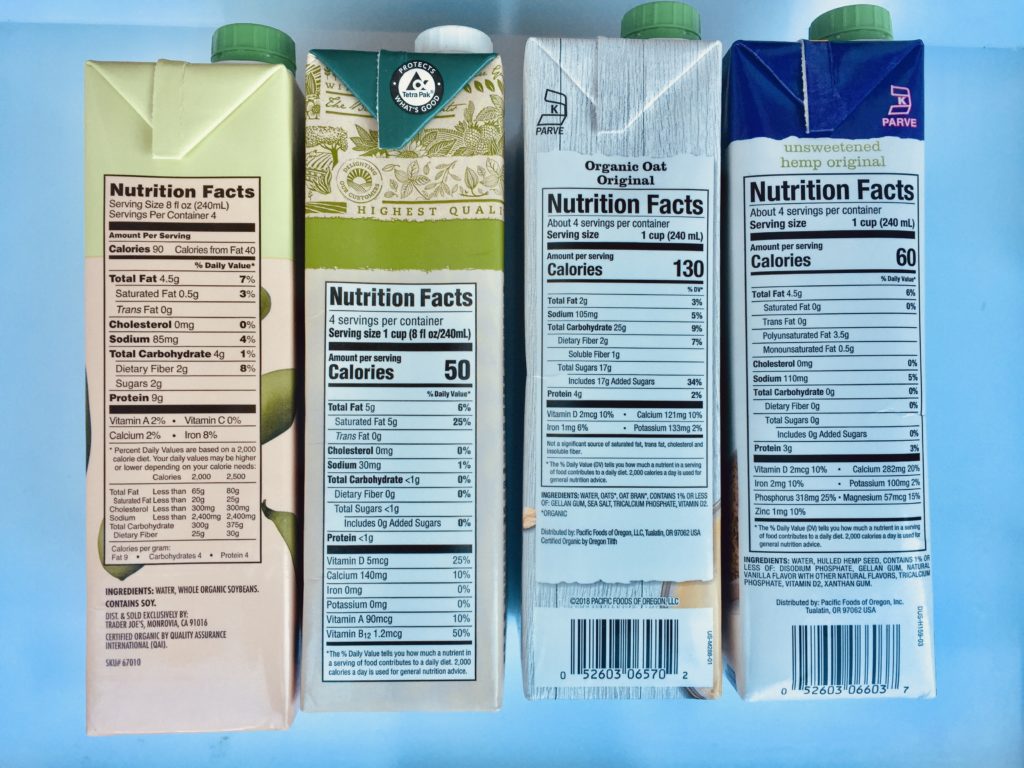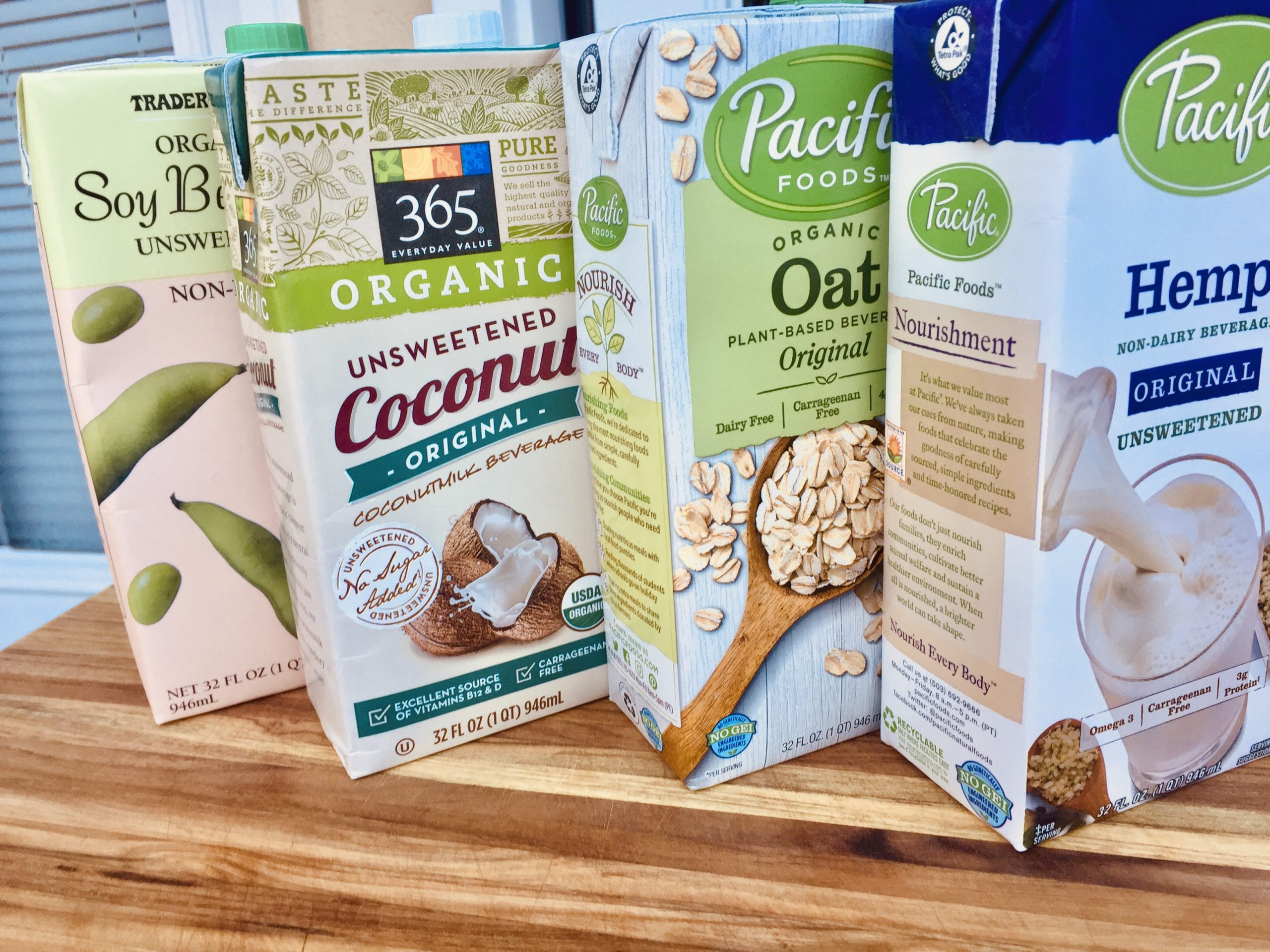So, you’ve decided to eat a more plant-based diet and want to replace your cows milk with a plant-based alternative, but which one do you choose? The good news is, there are a LOT of options, the bad news is, they are not all created equal and it may take some time to find the best one that works for you. I will discuss the pros and cons of soy, hemp, oat, coconut and almond milk from a nutritional standpoint. Of course, taste will be up to you.
Make sure you always read nutritional labels, especially if you have food allergies. Companies may change the ingredients in their products without notification. Also, try to taste different brands of the same product, for example the Soymilk from Trader Joe’s vs Soymilk from Whole Foods. You may find that you like the taste and texture of one brand better than another. In addition, I’ve always found the refrigerated versions tastier then then shelf stable kinds. But sometimes keep some for backup.
For this review I only chose unsweetened and unflavored versions of milk alternatives, as sweeteners and flavorings add unnecessary ingredients and calories.
1. Soy Milk: Soy milk is made out of soybeans and is nutritionally the most similar to cow’s milk. It has about 90 calories, about 9g protein, 4.5g fat, it has 2% calcium (some have 30% calcium, same as cows milk). It has 70 mg of Isoflavones per serving. This is a great choice unless you are allergic to soy.
2. Hemp Milk: It has about 60 calories per cup, 4.5 g fat, 3 g protein, 20 % calcium , 15% Magnesium, 25% phosphorus and 10% Zinc. This is an excellent source of Omega 3 fatty acids. Although this milk is lower in protein, I like it for all it’s other nutrients it provides.
3. Coconut Milk.: It has 50 calories per serving but less than 1g of protein but was fortified and therefore had 10% Calcium, 50% Vitamin B12. Although it has very little calories, it also has very little nutrition, except for a few exceptions, like the B12. This one is not my favorite it seems watery and is low in protein and other nutrients.
4. Oat Milk: It has 130 calories per cup, 4 g protein, 2 g fat and fiber, 10 % calcium, 10 % vitamin D. My family and I like the taste of this milk and I liked that it was higher in many nutrients than some other non-dairy milks. Although this brand (Pacific) only had 10% calcium, there are brands that have calcium levels similar to milk.
5. Almond Milk:
Overall, my favorites are soy, oat or hemp milk because of their taste and higher nutritional content. But because each one is different in their nutritional breakdown, I would recommend to vary between them. Maybe the Oatmilk for smoothies and coffee, soy milk for cereal and baking and so on. It also depends on your taste preference or food allergies. You can also blend Hemp seeds into Rice or Almond milk to boost their protein and nutrient profile.


